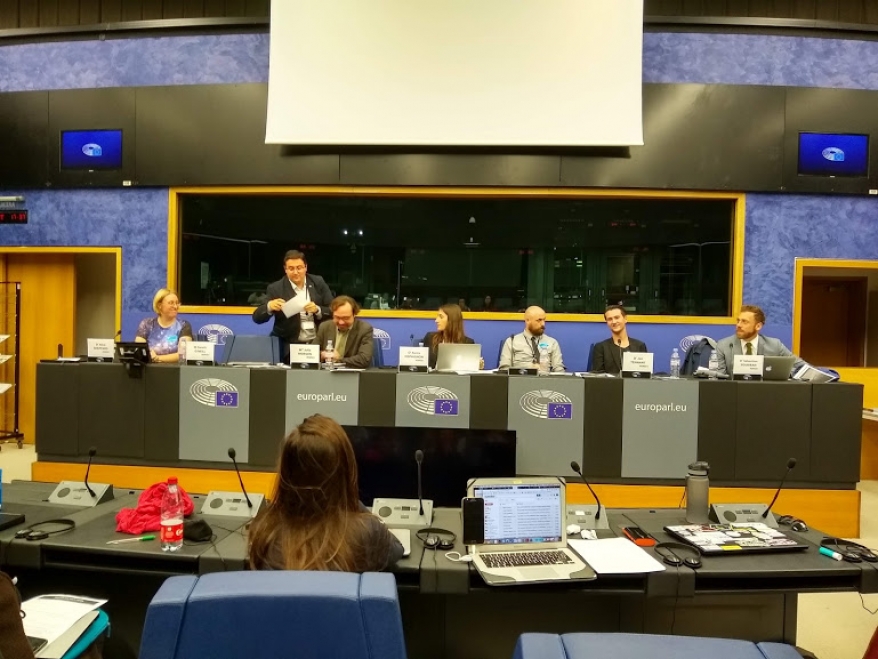The "Scientist with and for society" conference took a place on 19 October in Strasbourg and was prepared in an interactive manner including presentations and round table discussions on science in society. The conference was mainly focused on open science, citizen science, science communication, popularisation and role of scientist in the dissemination of an evidence-based culture. Eurodoc speakers were represented by Gareth O’Neill, Auréa Cophignon and Farouk Allouche. After the conference, a Eurodoc board meeting was conducted.
Populism, fake-news and disinformation are a serious threat to our democracy. During the past five years, Europe experienced the consequences of the phenomena in relation to the elections in several EU countries. This raised the need for an adequate and rational response to face those threats, based on the dissemination of an evidence-based culture in our society, and the implementation of education for democracy policies.
Indeed, scientists are more than ever called to actively respond to current and future social challenges. Hence, in the current context, they can actively participate in the public debate by making their methods accessible and open to the participation of citizens. Such an exchange allows the dissemination of rational, evidence-based and reasoning based on sound arguments. This could be done through the global movement called “Open Science” that has been defined as the first pillar of EU framework project 9 for research and innovation. Our president, Gareth O’Neill, introduced the conference with a talk on open science and its importance for early-career researchers.

Round table: role of scientist in the dissemination of an evidence-based culture With the participation of “Jardin des Sciences”. This event, coordinated by Farouk Allouche, was organised in partnership with the Eurodoc, CJC, ADDAL, AJC06, StrasAIR and the newly formed think-tank “Europe and Democracy”.
In the “Scientist with and for society” conference, we focused on the role of the scientist in society through a mutual influence between scientists, citizens and politicians. It was the subject of Mrs Sophie Le Rue opening speech, who is working as DG COMM at the European parliament. After defining the challenges facing by the EU for the future elections, and the role of scientists in this context, we discussed how scientists can promote a better collaboration and convergence of actions for science between them, politicians and the general public, through the concept called “Citizen Science”. Dr. Alice Sheppard presented ExCiteS – UCL, which is focused on the development of various projects that engage citizens, with interdisciplinary science and technology challenges. The Jardin des Sciences of the university of Strasbourg has been also invited to provide us with local experience, on this kind of citizen-scientist interactions.
Then, we discussed the importance of communicating and popularising science, rationality and critical thinking. Dr. Jon Tennant, Open Science Communication Expert and founder of the open science MOOC, gave a talk about science communication. In order to impact the general public and schools effectively, scientists must be trained in scientific communication and popularisation. This is part of the transferable skills that an early career researcher must develop from the doctorate onwards. Having quality exchanges will also create a vital link between scientists and the general public that will greatly facilitate participatory science.
Authors: Auréa Cophignon and Farouk Allouche

